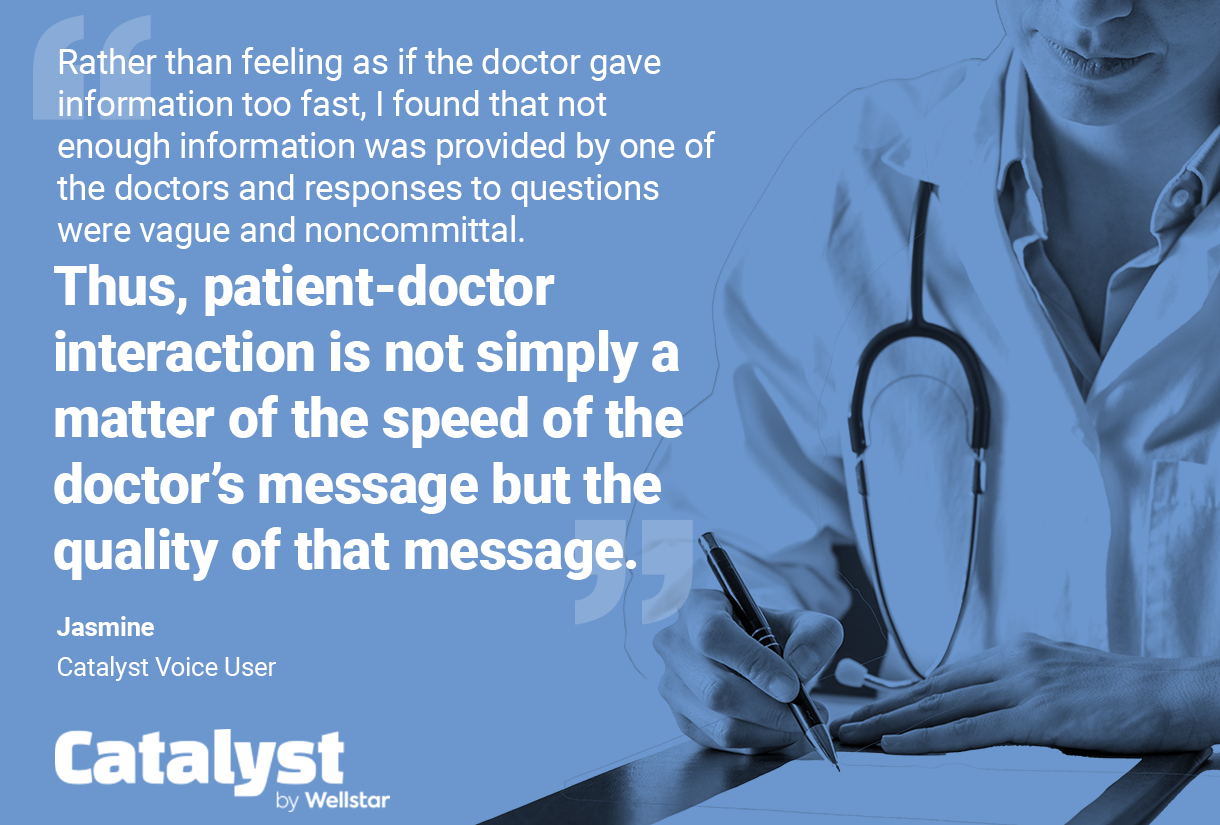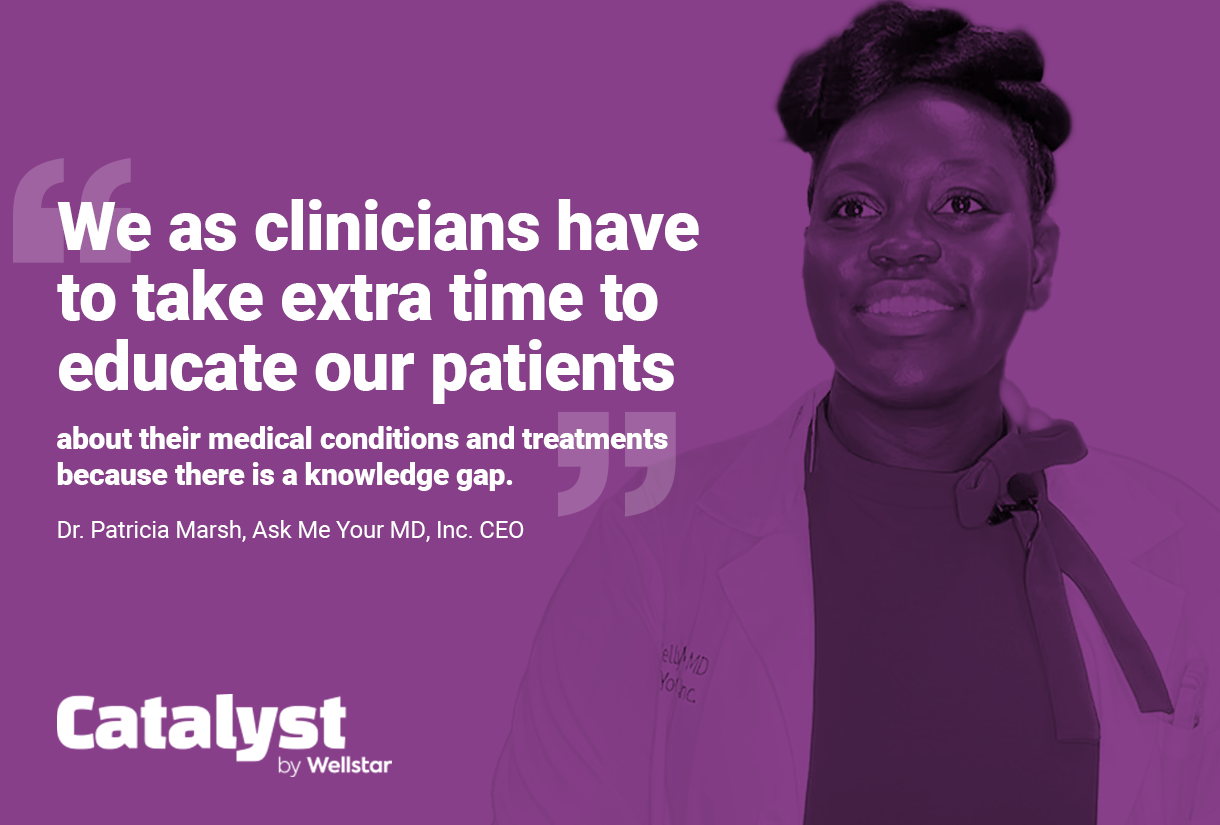
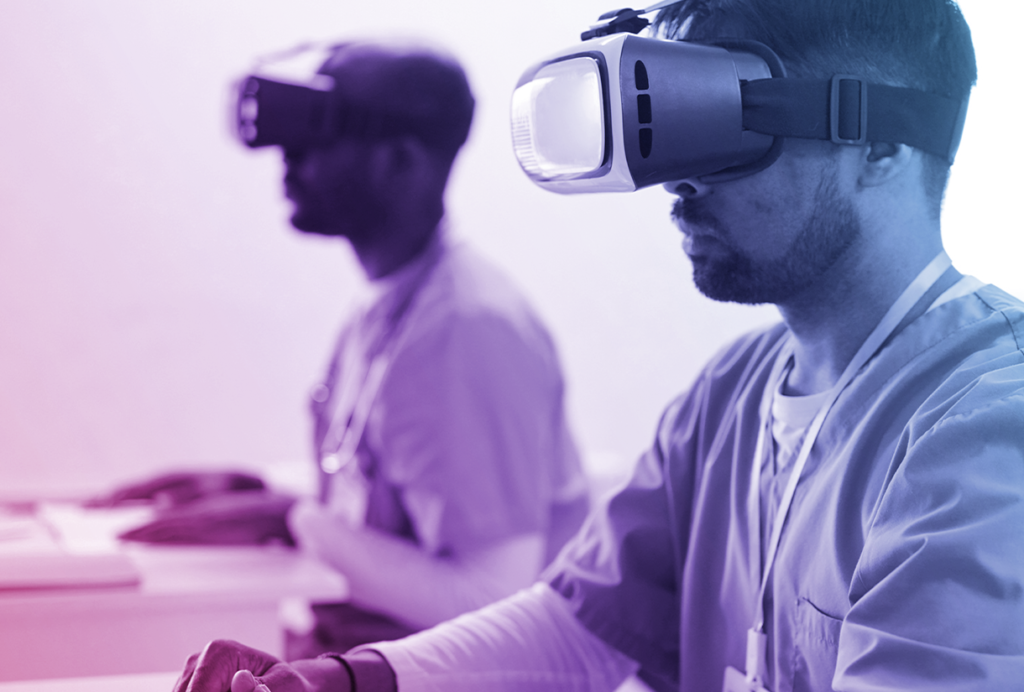
Preparing our doctors to deliver messages with empathy
Doctors spend almost a decade of their lives training and experiencing all types of situations during their rotations. This training makes the difference when seconds count in saving a life. It allows them to live the Hippocratic Oath daily: to do no harm.
These are called “hard skills” and can include properly performing a blood draw or surgery. They’re essential because when done incorrectly, there could be harm to the patient.
But much less training is dedicated to “soft skills,” which include connecting to patients with empathy, working in teams, and maintaining a positive attitude.
It’s about empathy and it makes up the core of PeopleCare: treating everyone as an individual, not as a diagnosis. It means being there for the difficult moments as well as celebrating the achievements along the way.
Among the list of soft skills, communication is vital. Several studies have tackled the issue over the years, often noting the need for increased training. For example, a study by the American Academy of Orthopedic Surgeons found that 75% of orthopedic surgeons thought they did a good job communicating with patients while only 21% of patients felt the same.
Catalyst by Wellstar has stepped up to help address the issue. In May 2022, we led Wellstar’s first-ever virtual reality development training in collaboration with Moth+Flame, an award-winning VR communication technology developer.
This training lets team members practice difficult conversations and see the impact of their words on others. They can review what they said and receive an empathy rating. 57% of participants said the training reduced their anxiety about these situations.
Because Moth+Flame uses real-life actors, it’s easier for team members to connect with the system and retain what they learn.
Picture what a nurse could say to an elderly patient when it’s 2 a.m., and they’re feeling alone. Nothing prevents these interactions from happening today, but to know that we have a tool to help us practice is reassuring – much like athletes practicing a specific part of their game.
The right word at a moment of stress can make all the difference and help a patient or family get through a difficult day.
Have you experienced a situation where your doctor did not show the empathy you expected? Let us know in this week’s survey and drop your comments below.
The Impact of Communication in Healthcare
Dr. Anjali Grandhige, palliative medicine specialist, discusses the importance of clear and compassionate communication with patients.
Survey Results: Bedside Manners
Thank you for taking our survey about communication and bedside manners. Here are the results we are sharing with teams across Wellstar.
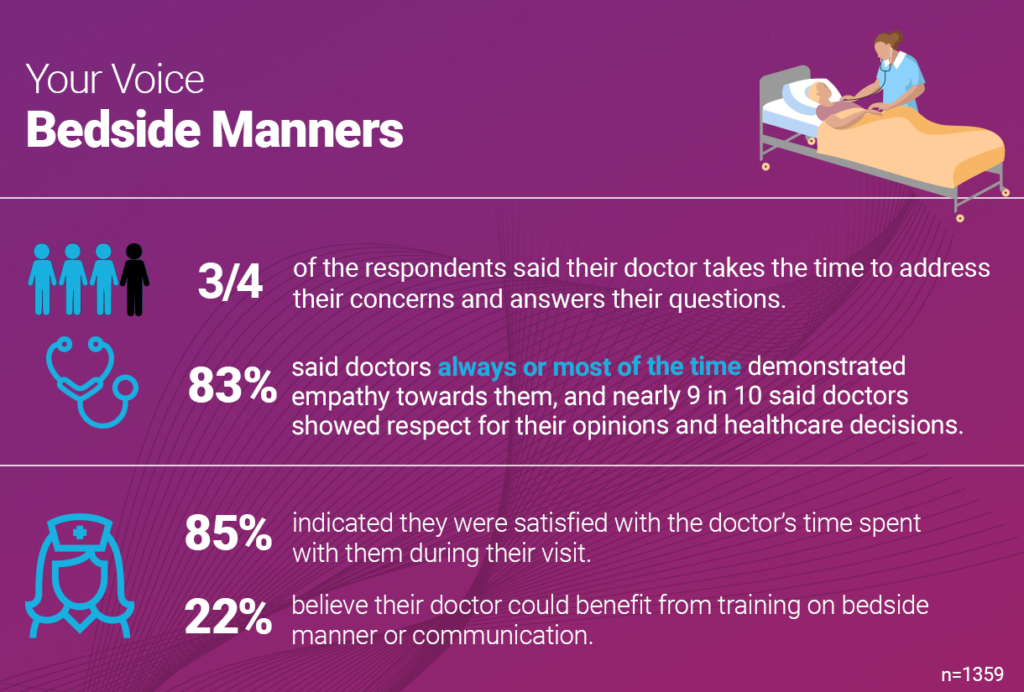
Your Voice
Share a situation where you think a doctor could have listened or communicated better. One Voice user wrote in the latest survey what they look for in a doctor.
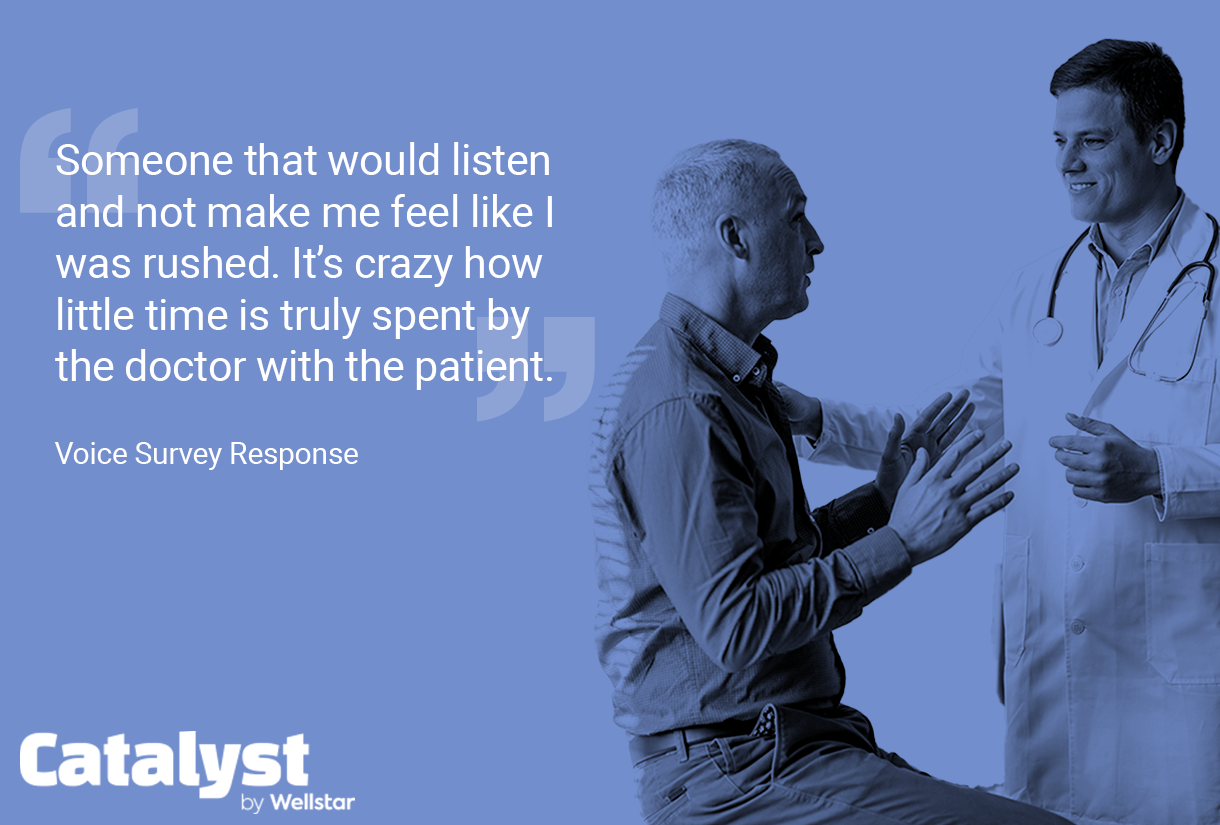
We share the comments you leave on Voice with Wellstar leaders, as we shape the future of healthcare. Jasmine told us about doctors not delivering their message in the best possible way and leaving questions unanswered. Have you ever experienced a similar situation in your appointments?
